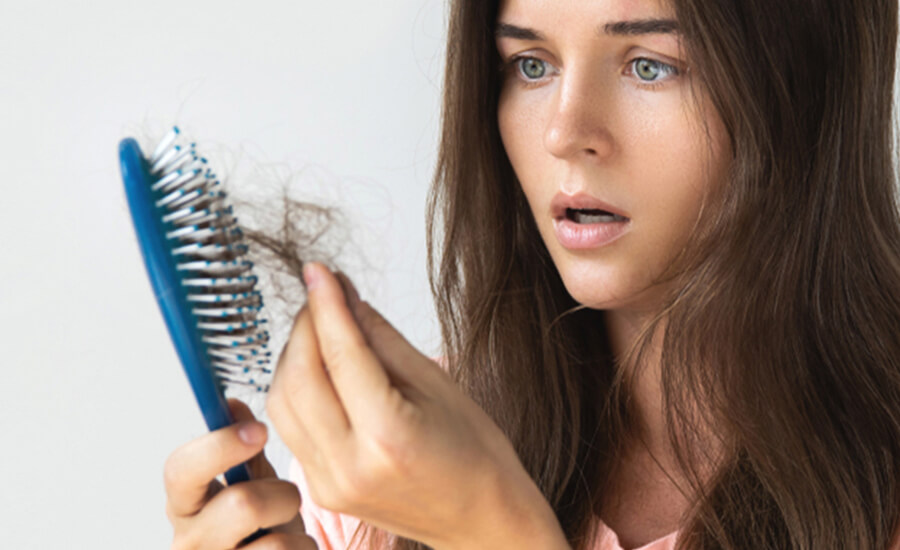Gain your lost hair back with the help of latest Technology & V Plant experts.

Common factors that may cause female hair loss is anaemia, low iron levels, inadequate protein intake and thyroid gland troubles, androgenetic alopecia (female type), When female hair loss is a major symptom, then cure through appropriate treatment will address the issue of hair loss & helps to regain confidence.
Hair restoration is one of the best methods to deal with female hair loss. Our in-house technique MHI (modified hair implantation) is a latest most advanced technology which gives guaranteed safe, natural dense outcomes.
Female Hair Loss FAQs
Explanation of common questions regarding women hair loss
1. Female pattern hair loss?
Diffused thinning of hair on the scalp which usually affects a lot of women, particularly those in their 40s & 50s, often leads to hair shedding or reduced hair volume.
2. What are the common causes of female hair loss?
Knowing the exact cause is important, so that proper treatment can be given. Here are the possible causes of hair loss in women:
- A strong genetic predisposition in which genes could be inherited from either parent or both
- Role of estrogen in female hair loss could also suppress hair growth.
- Hair loss can be experienced during childbirth when hormones fluctuate.
- Extreme Stressful events reasons like trauma, a divorce or death of a loved one & other psychological conditions which may be responsible for hair loss.
- Hair styling methods which eventually strains the follicles resulting in excessive hair loss.
- Skin diseases can also lead to hair loss such as ringworm of the scalp.
- Drugs, trauma can also lead to hair loss as a side effect.
- Cancer treatment can also cause excessive hair loss.
1. Woman having irregular crash-dieting has the tendency to experience more hair loss.
2. Inadequate protein or iron in our food can also result to excessive hair loss.
3. Usual age when women are affected by hair loss?
Many women start to lose their hair in their early 30s, but they will remain unnoticed about the thinning until they have lost nearly 40% to 50% of their total hair volume. Statistics even show that 30% of women already have visible hair loss by the time they hit 40.
4. Laboratory tests required to determine female pattern hair loss?
Haemoglobin, iron level, thyroid function & certain cases hormonal tests are important.
5. In which condition hormonal evaluation necessary for female pattern hair loss?
The doctor will only require extensive evaluation if the patient is experiencing irregular periods, cystic acne, galactorrhoea, and infertility & suspecting polycystic ovarian diseases.
6. What is a difference between women hair fall compared to men hair fall?
In Females hair loss sheds in a diffused pattern which is a different manner compared to that in Men. In rare instances frontal hair recession & corner receding may happen in females.
7. Treatment options available for female pattern hair loss? Several treatment options available for female hair loss?
- Topical or injectable corticosteroids have been shown to increase hair regrowth in certain types of hair loss
- Topical minoxidil hair loss medication which can be used for men and women is a proven treatment that promotes hair regrowth in some types of hair loss.
- Oral or topical estrogen & other hormonal treatment can also be prescribed for hair loss.
- Hair transplant is also a good option which provides a permanent replacement for bald or thinning areas.
- Laser combs/treatment, PRP, Mesotherapy are also effective treatments to promote hair growth.
8. Can a woman be considered a good candidate for hair transplant surgery?
A realistic & informed view of the procedure is very important for ultimate satisfaction. The doctor has to evaluate the patient and after diagnosing specific condition she can go for hair restoration.
9. Whether styling affects the hair or cause hair loss?
Tight ponytails, hair weaves or braids can damage hair follicles if worn for long periods due to continuous traction.